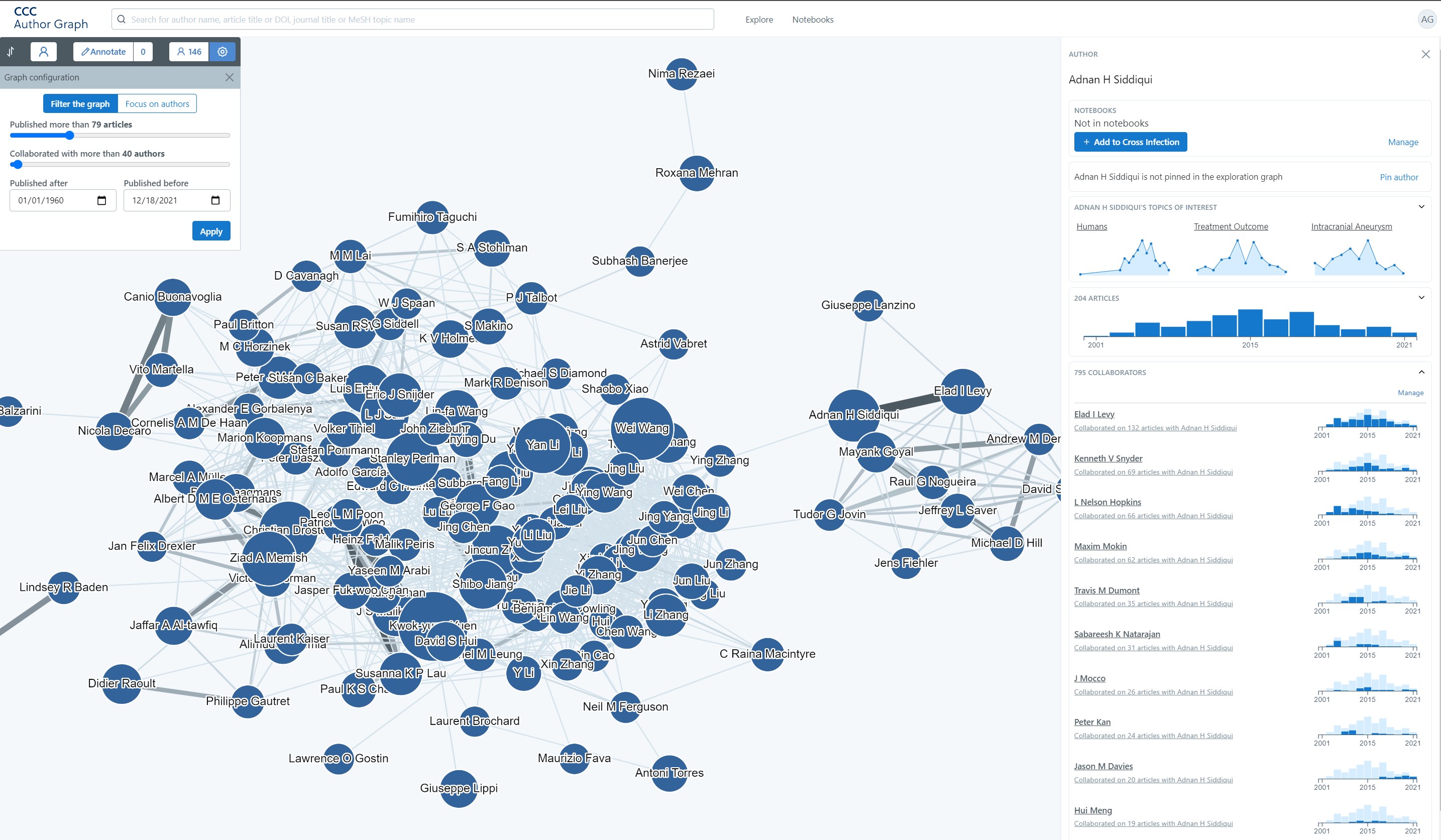These comments were originally presented at the Outsell Signature Event on 12 November 2020, where CCC President & CEO Tracey Armstrong participated in a panel discussion with CCC EVP & CTO Babis Marmanis and moderator David Worlock on “Using AI to Create Collaboration, Partnership, and New Business Opportunities: Launching the CCC Knowledge Graph.”
2020 has provided more than its share of disruption and, in many parts of the information and publishing industry, leaders have risen to the occasion and introduced powerful new information tools and services to meet market demand. Those organizations that began 2020 with their data house in order were able to pivot quickly, provide new value, and produce strong margins. Their leaders demonstrated the importance of viewing disruption as an opportunity for transformation, reinvention and growth.
Among our top priorities as information industry leaders, we must focus on:
- Investing in knowledge engineering and infrastructure. Having moved up from “nice-to-have” to “must-have,” well-managed data acquisition and curation, and knowledge production are essential to internal collaboration, partnership and innovation.
- Using data derived knowledge to inform decisions. The emergence of knowledge graphs and their intersection with AI is starting to inform decisions at the boardroom level.
- Partnering in new ways around data opportunities. Because proprietary data is not sufficient, organizations are identifying new data partnerships to augment, complement, and enrich the data that produce the required knowledge.
We’re all data scientists now.
Ten years ago, companies were racing to hire data science specialists, experts who would tell us all kinds of things from our data once it was cleansed, normalized and enriched. But these data scientists were subject matter experts in the science of manipulating data to derive outcomes – and not subject matter experts in publishing, finance, chemistry, agriculture, energy, education, biology or the myriad of other sectors we serve in the information industry. Business goals must drive data investments, which means we’re all data scientists now. Every SME we hire at CCC today is trained with a data science orientation in mind, and our business leaders across the company, from marketing to product management to sales and beyond, have expanded their data skill sets.
Seeing data in new ways with knowledge graphs
We can no longer think of data and data analysis as separate from the core business, and that’s not just in publishing and the information industry. All business leaders are embracing new ways of understanding data through the use of knowledge graphs, for example, to gain valuable insights that can serve their customers, and using data in AI to drive innovation and position themselves well ahead of their competition.
Given our collective licensing role, CCC is actively engaged in the intersection of copyright and AI, having recently submitted comments to both the World Intellectual Property Organization and the U.S. Patent and Trademark Office to bring the voice of rightsholders into the conversation. And as an organization that builds both packaged software solutions and creates custom or bespoke technology solutions, we’re collaborating with our publisher and licensing partners to innovate.
Using knowledge graphs lets you supercharge your understanding of a particular area and gain unexpected insights. Knowledge is buried in documents and other unstructured data, and it is very hard to surface it at the right time. Knowledge graphs capture relationships between entities and make it easier to index, process, and find “nuggets of knowledge”. They help us think in a reference frame that grounds our interpretation of data and enable us to search for knowledge by using “things” rather than “strings”.
Investment in knowledge graphs pays off because they are not single-purpose models; they inform multiple decisions, not just one. Knowledge graphs are like living organisms, they are constantly changing, and we can continuously benefit from our investments as a result. When we use knowledge graphs in combination with Artificial Intelligence, our data output moves up from simply being “stated” to being “informed.” This gives us greater confidence in the inferences we make from the data and provides us a better ROI from our investments in graphs.
A surge in pandemic-related research created a corresponding surge in the number of scholarly journal articles in need of peer review, putting pressure on the scholarly publishing ecosystem. CCC’s investment in knowledge engineering enabled us to rapidly develop a data-driven solution — a knowledge graph of authors derived from bibliographic citations to address this major market need. The CCC Author Graph enables exploration of a collection of authors and experts in coronavirus-related research and the analysis of the interconnections between them, their publications, and areas of interest. This knowledge graph can aid in the identification of peer reviewers and understanding of the research landscape for coronavirus-related publications and has uses ranging from publication ethics to marketing analysis.
 Establishing unconventional data partnerships.
Establishing unconventional data partnerships.
Those leaders actively investing in data have seen the power of expanding and integrating data sets. With the eruption of the COVID-19 pandemic this year, we see the emergence of new dynamics in collaboration as the world rushes to find therapies, vaccines, and ways to cope with the novel coronavirus and its effects. Recent news about vaccines highlight how organizations partnering to share resources – staff, systems, and data – are making incredible strides and previously unanticipated data partnerships are happening, too. For example, we’re seeing the combination of consumer and B2B data sets with municipal and federal government data in interesting and informative new ways.
Industry leaders making investments in knowledge engineering, identifying new opportunities for data partnerships, and leveraging new visual data analysis tools can put the power of data to good use. As we’ve learned in 2020, leaders must take steps to be ready for the next disruption, and investments in data readiness will serve them well.


